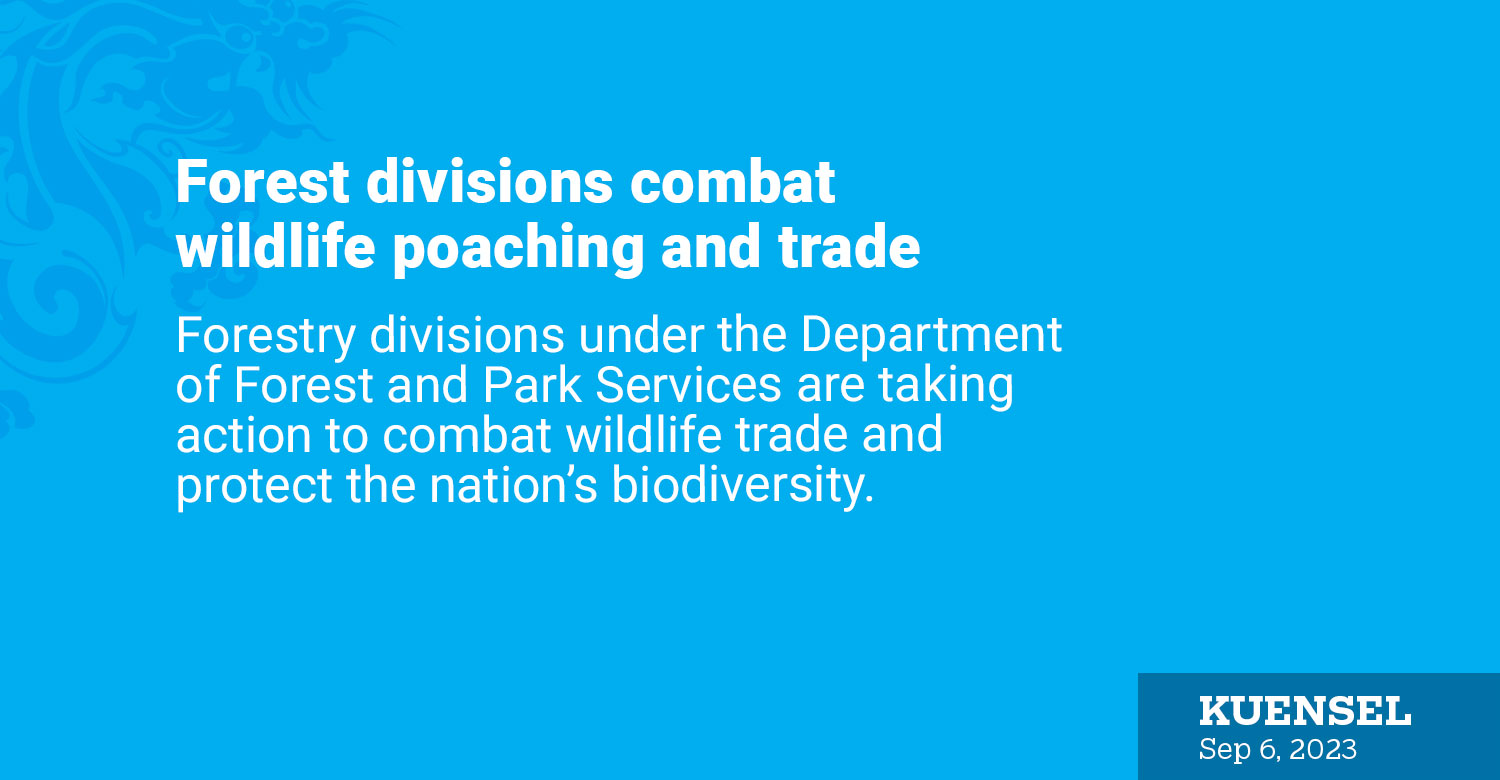YK Poudel
Forestry divisions under the Department of Forest and Park Services are taking action to combat wildlife trade and protect the nation’s biodiversity.
Six key pillars have been introduced as a part of their strategy to achieve zero poaching to address various aspects of this critical issue.
During a zoom webinar yesterday, titled “Efforts of frontline staff in the fight against wildlife crime”, Phub Dhendup, chief forestry officer at the divisional forest office in Sarpang, shared details about this initiative.
The pillars include assessment, technology, capacity building, community involvement, prosecution, and co-operation aimed at addressing the problem of wildlife crime, which has far-reaching consequences across different sectors.
Phub Dhendup highlighted the ongoing threats from poaching activities, retaliatory killings, and the use of wildlife products in Bhutan. Particularly concerning is mammal poaching, which remains a challenge in high mountain regions.
Bhutan’s strategic location as a trade route for wildlife products exacerbates the problem. Efforts to implement the zero-poaching concept began in 2014 in collaboration with WWF Bhutan.
The assessment process involves regular effectiveness assessments, and the use of technology has improved data collection with the introduction of rugged Android smartphones for frontline rangers.
Capacity building efforts include training and exposure trips, along with the use of drones for efficient patrolling.
Local community engagement initiatives focus on youth education and awareness campaigns, reaching thousands of students and villagers. In terms of prosecution, training is provided to ensure proper evidence recording for successful legal actions.
Phub Dhendup said that addressing wildlife poaching requires collaboration among various law enforcement agencies, including the army, police, customs, and others. Cooperation among policymakers, law enforcers, and the public is deemed essential to achieve the goal of turning poachers into protectors.
Between 2017 and 2021, over 108 cases of mammals being poached were registered, with the highest number involving Sambar in 2021. Illegal fishing cases, particularly related to Brown Trout, have been frequent, with 565 cases recorded in the past five years.
The Forest and Nature Conservation Act of Bhutan 2023 categorises possession of wild fauna specimens listed under schedule II and III as an offense, with fines and specimen confiscation as prescribed in the Rules.
Illegal timber trade, including the smuggling of red sandals from India, is another concern.
Human-wildlife conflict is a significant issue for farming communities in the country, with annual crop losses ranging from 19 to 43 percent due to wildlife damage. This, in turn, has contributed to an increase in illegal poaching activities.


